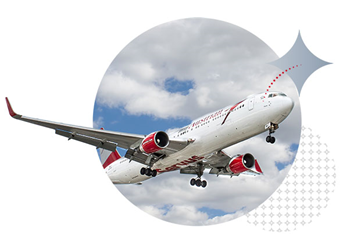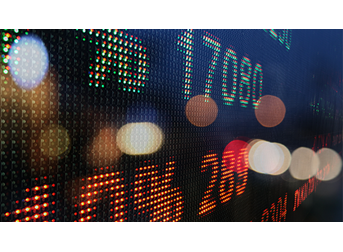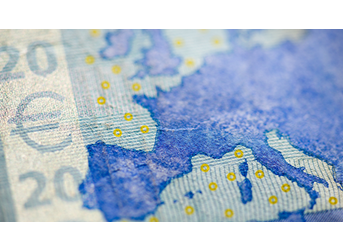Doing business in France
Quick, simple and transparent international transfers in euros



How we can help your business makes its money transfers
Forward Contract
Forwards allow you to buy currency on an agreed future date at a pre-fixed rate. This may require a deposit and allows you to lock in a rate for up to two years.*
Spot Contract
This is an agreement between you and your FX provider to buy currency at the present exchange rate, and it can be used for imminent payments.
FX Orders
If you need a particular exchange rate but have no urgency to purchase straight away, an FX order could help you secure a better deal.
FX Options
Designed for foreign exchange rate management, options can be created as a bespoke solution for your business and its payment needs.**
There are several very compelling reasons for people to want to do business in France, the world’s seventh-largest economy. These include the presence of world-class industries and organisations and the strong protection and regulation of contracts and property rights. For those looking at investing in the country, there is also the abundance of successful companies and a large, sophisticated consumer base to consider.
When one adds a highly educated workforce, largely pro-investment government policies and a low level of corruption among officials into the mix, you can see why the country continues to attract investors from around the world.
The advantages of doing business here does not come without a few challenges. You may need to deal with bureaucracy and red tape if you invest in the defence, financial, power, or public transport sectors. Complex labour laws, a 10% unemployment rate, national budget deficits, and high public debt are other challenges.
Indeed, France has held the lead as a destination for luring foreign investment into Europe for the last three years, attracting 985 foreign direct investment projects in 2020. The outward stock of foreign direct investment (FDI) from the UK in France hit £85.5bn in 2020, accounting for 5.2% of the total UK outward FDI stock.
It’s true that the advantages of doing business here does not come without its challenges. You may need to deal with bureaucracy and red tape if you invest in the defence, financial, power, or public transport sectors. Complex labour laws, a 7.3% unemployment rate, national budget deficits, and high public debt are other challenges. Despite those challenges, the relative ease of doing business here makes it a very appealing prospect on balance to most businesses.
Guide to business in France for foreigners
What are the major industries in France?
Energy is big business in France. Électricité de France (EDF), the twelfth-largest electricity company in the world, and another key player, Engie, are both headquartered in France. Nuclear energy accounts for over three-quarters of the country’s power production, and there are many major players working on renewable energy, making it a low-carbon country despite extensive manufacturing and industrial plants in a range of specialised fields.
In addition to automobile and aerospace manufacture, the technology park Sophia Antipolis is home to a number of well-respected European institutions that lead the field, including ETSI (European Telecommunications Standards Institute), Skema Business School and the ERCIM (European Research Consortium for Informatics and Mathematics).
Traditional industries, such as trade in agricultural goods, also thrive in France; the country is home to the largest utilised agricultural area in the EU, with 27.4 million hectares under cultivation. It is also a major exporter of agricultural produce: it boasts the second-highest export volume of potatoes, with $684m exported in 2020, and it is the world’s leading exporter of wine. It remains a highly regarded home of high fashion and luxury goods. There’s no question that France will continue exporting the French lifestyle, taste and style across the globe.
Business etiquette in France
With the exception of some very modern industries, doing business here remains relatively formal and almost exclusively conducted in French. Those used to a faster-paced business world may feel frustrated with the focus on etiquette, particularly the French fondness of a long meal served with generous helpings of wine.
Business in France for foreigners may take a little patience. It’s worth taking the time to build productive and positive relationships; if you’re starting a business here, you’ll find that the time that you invest in the early days expanding your network will make a big difference to your long-term success.
What are typical business hours in France?
Statutory working hours are technically 35 hours a week; however, most office-based employees work longer than this. While working hours in France are generally regarded as lower than in many other European countries, companies typically work from 8:30-9:30 to 17:30-19:00. This also includes a lunchbreak of anywhere between one and two hours (depending on company policy) and several extended coffee/tea breaks throughout the day.
Working longer than contracted hours is a common practice, as with most other countries, and time in lieu is generally taken seriously and awarded appropriately. Annual leave in France is often considered generous, with the average employee entitled to five full weeks of paid holiday per year.
Taxation for businesses in France
Corporate taxation in France can be difficult to navigate initially for foreigners, which is why it’s important to know which tax your business will need to pay as well as how and when you can submit your tax returns. Your corporate tax bill in France will hinge on the nature of your business and whether your company is a resident of the country. Resident companies pay a corporate tax rate of 25%, and this applies to all income earnings directly related to French business endeavours and property. If a tax treaty is applicable to your activities, your overseas earnings will be treated as a foreign business activity; if there is no such treaty, it will be classed as a foreign PE.
Read our guide on paying corporate tax in France to find out everything that you need to know.
What are the challenges of doing business in France?
France welcomes those starting a business and global companies looking to set up an office or headquarters in the country. However, there is a strong expectation that the company will adapt to French business culture.
While the legal and financial infrastructure are modern and supportive of business, utilities can be another issue. The application for electricity takes 20 days, a compliance certificate requires a further 20 days and the whole process takes roughly 70 days. It often takes up to two months to secure a suitable internet connection, such as ADSL or fibre connectivity – whilst it can be faster for an individual requiring broadband as a sole trader, it often takes longer in small and historic towns.
Brexit has had mixed results for the French economy. Whilst it caused considerable disruption to export business in France and the wider EU, the country has seized upon the departure of the UK as an opportunity to attract global companies seeking a new base within the EU.
Visit our Brexit Hub to stay up to date on all the latest Brexit developments and the effect they have on the currency market.
How to register a business in France
EU citizens do not require a visa to set up a business in France. However, it’s worth noting that there are different types of personal visa for those who do need to apply, and not all visas allow holders to start a business or begin doing business in France.
Tourism or student visas do not automatically allow holders to establish a business, but if you’re applying for a commercial visa, or have personal ties to France, you have the ability to open a business. In addition, visas for people with specialist or in-demand skills may apply if you’re planning a venture which meets with these requirements. Residents of more than ten years can also start a business without the need for further paperwork..
You can’t apply to start a business without a visa, so it’s an important, albeit often lengthy, step to take. If you’re planning on applying for a visa entrepreneur, you’ll also need a clear business plan that demonstrates that your income will be at least €1500 a month to cover your living expenses. Savings will be taken into account, but you will need to ensure that your numbers are accurate; otherwise, you may have future visa applications rejected. You’ll also need those business details when you register a business in France – you’ll need both a financial plan and a concise business plan as part of the application.
It’s important to note that post-Brexit, all these documents will need to be delivered in French, so it’s worth brushing up on your language skills and investing in a professional translation service to avoid any misunderstandings or delays. There are lots of opportunities for aspiring businessmen in France. Speaking the language will prove to be a big advantage, but if you can work through the notorious red tape that becomes apparent when you start looking seriously at how to do business in France, it’s a country where there are broad opportunities for businesses looking to succeed on the global stage.
While you’re working through the process of how to set up a business in France, a currency specialist can help you manage funds across borders. As well as competitive rates, expert guidance and a wealth of business FX solutions to support your business in France, an understanding of currency risk costs can help you develop a strong business plan to support business registration requirements.
What are the biggest opportunities for doing business in France?
There are a number of advantages of doing business in France. The French consumer base is wide-ranging, sophisticated and in possession of considerable spending power. There is enormous potential for high-quality, carefully packaged and competitively priced products in the French marketplace, with its interest in responsible consumption and healthy, environmentally friendly products.
France represents good export potential, given its substantial population of over 65 million, its booming industrial sector and large national businesses. The UK exported mechanical power generators to France in Q1 2022 worth £1.5bn, in addition to £1.4bn of aircraft.
France hosts some of the world’s biggest international trade fairs, offering valuable opportunities for French and international buyers to connect, and France is also home to estimable aerospace, automotive, energy and transport sectors.
Doing business in France with Moneycorp
Moneycorp offers global payment solutions for your business needs and extensive options to protect your money from exchange rate movements. Send money to and from France with ease through our international payment service.
Sign up for a business account with Moneycorp today.
Get in touch & learn more about how we can send money to and from France



